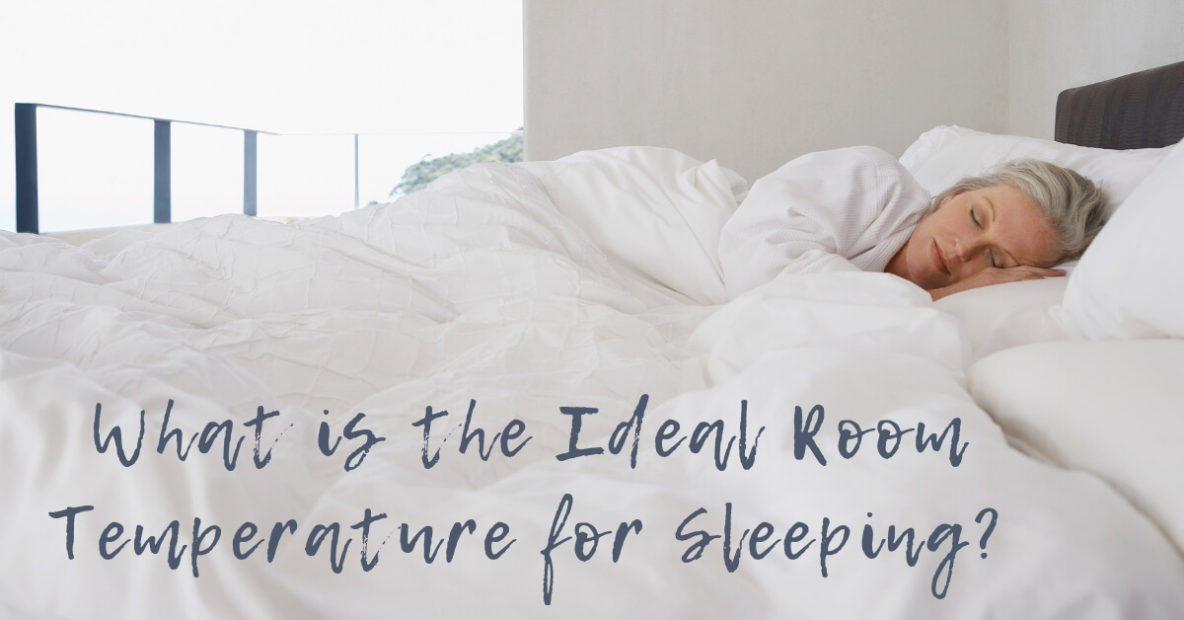What is the Ideal Room Temperature for Sleeping?

- A Promising Paradigm Shift: New Research Challenges the CPAP-First Approach to OSA Treatment - September 5, 2023
- Understanding Sleep Meditation Techniques - July 30, 2021
- How Online Learning Has Affected Sleep for Students - July 13, 2021
Have you been struggling to get a good night’s sleep? Do you often wake up in the night feeling too hot, and take off a blanket? Or maybe you wake up freezing, and have to get up to find a pair of socks. Whether you’re too hot or too cold, finding the ideal room temperature could be the secret to falling asleep easily, and sleeping soundly through the night.
Setting the Thermostat
If you’re energy conscious, you might have the house colder in the winter and warmer in the summer, and while this might save your electricity bill, it could be costing you your sleep. Room temperature plays a big role in your ideal night. So, what’s the best temperature for sleeping? Experts say that the best temperature for optimal sleeping is between 60- and 67-degrees Fahrenheit. This cool temperature will keep you from sweating during the night, and will allow you to snuggle up under your cozy covers. If you’re feeling a bit cold, you can wear socks, or place a hot water bottle at the foot of your bed.
Did you know that as your body prepares for sleep your body temperature decreases? Along with a slowed heartrate, a decrease in body temperature signals to your body that it’s time to rest, and if your room is set to a cooler temperature, you will be helping your body to cool down, and naturally feel drowsier. Temperatures that are much higher or much lower than the optimal temperature can lead to restlessness or discomfort, or cause you to wake repeatedly during the night.
It could help to see your room as a cave. When you go to bed it should be quiet and dark as well as cool. Close your windows to block out distracting sounds, and make sure you have darkening blinds on the windows. You could even put on white noise if you’re bothered by background sounds.
It’s All About the Bed
Your bed will make a huge difference on your sleep. If you’ve been struggling to get a good night’s sleep, take a look at your mattress, and make sure it’s the right fit. If you’ve been sleeping on the same mattress for a few years, it’s time to consider an update. Experts say you should upgrade your mattress once every 7 years to have optimal sleep.
Bedding also affects the quality of your sleep. Natural fibers are better than synthetics, and you should choose soft, cozy fabrics like cotton or linen. Pick colors that you like, and make sure they’re soft and inviting. Avoid lighting your room with harsh white lights, and consider an essential oil diffuser if you’ve noticed a smell in the room. The best oils for sleep include lavender, vanilla, and jasmine.
Room Ambiance
Temperature plays a big role when it comes to getting a good night’s sleep, but it’s not the only thing you’ll need to take into consideration when you are having trouble sleeping. The overall ambiance of your room can help you feel relaxed and calm before bed, and the colors of the wall, or the bedding you choose, will make a big difference in the number of hours you sleep each night.
Keep your room decluttered, and avoid the temptation to add another bedside table or pillow. Arrange your furniture in functional ways, and place your bed away from the door. Avoid placing it underneath windows that face the street. Staying away for the door and windows will make your bed the most tranquil place in the room, and encourage relaxation. Take out any chairs, mirrors, or tables that add to the clutter of the room, and keep the design simple and clean.
Color can also have a huge impact on your mood. Bright colors like red or orange can actually make you more energetic, or lead to anxiety. Choose muted and soft colors for your bedroom walls, like cream, blue, or beige. These soothing colors will be calming, lower your heart rate, reduce blood pressure, help you fall asleep sooner, and sleep more deeply.
Sound Sleep Medical
If you’ve been struggling to fall asleep at night, and have noticed the negative effects off obstructive sleep apnea on your life, then visit us at Sound Sleep Medical, and find solutions to your sleeplessness.
